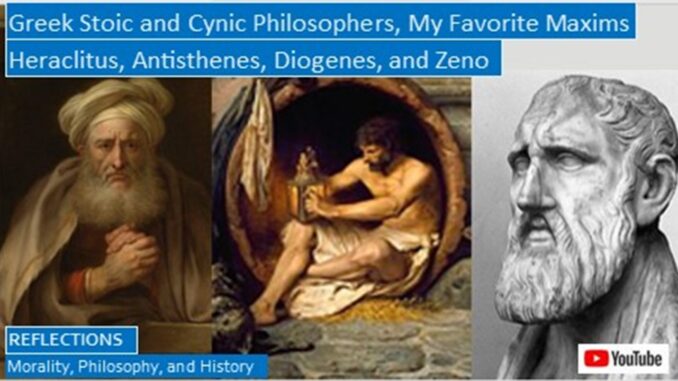
Today we will reflect on my favorite sayings of the Greek Cynic and Stoic philosophers.
We found some additional maxims from another collection of fragments. Many of these sayings were previously included in other reflections, but we wanted to gather our favorites together in one place.
Most of the many works penned by the Greek Cynic and Greek Stoic Philosophers have been lost in the sands of history, their sayings are preserved in surviving fragments, mostly preserved by the ancient compiler, Diogenes of Laertius, in his Lives of Eminent Philosophers. And he lists the dozen or more lost works that many of the philosophers each penned.
YouTube video using this script: https://youtu.be/rq3oRftjM4c
Script for this video, with more Amazon book links:
https://www.slideshare.net/slideshows/greek-stoic-and-cynic-philosophers-my-favorite-maxims-heraclitus-antisthenes-diogenes-and-zeno/266325724
HERACLITUS, PRE-SOCRATIC PHILOSOPHER
We will first examine some sayings from the pre-Socratic philosopher Heraclitus, who inspired not only the Greek Cynic and Stoic Philosophers but also the early Church Fathers.
Many of Heraclitus’ sayings are short and pithy:
“Asses prefer straw to gold.
All things are in a state of flux.
Man’s character is his fate.”[1]
Heraclitus is best known for his saying, “You cannot step twice in the same river, for fresh waters are ever flowing.”
“The people should defend the law as they would their city wall.”
Some quick sayings by Heraclitus: “You should extinguish pride more quickly than a fire,” which some translators render as: “You should extinguish violence more quickly than arson.”[2]
“Men fail to notice what they do when they are awake, just as they forget what they do when asleep.”[3]
“It is better to hide folly than to make it public.”
“It is not good for men to get all they want.”
“To be temperate is the greatest excellence. And wisdom is speaking the truth and acting with knowledge in accordance with nature.”
“All men can know themselves and be temperate.” [4]
Diogenes of Laertius also included more sayings by Heraclitus, and many of the quotes from the early Church Fathers compared Scripture to his maxims.
Heraclitus, Pre-Socratic Philosopher, Inspiration for Stoics and Clement of Alexandria
https://seekingvirtueandwisdom.com/heraclitus-pre-socratic-philosopher-inspiration-for-stoics-and-clement-of-alexandria/
https://youtu.be/7Kpfm0O8XBA
ANTISTHENES, THE FIRST CYNIC PHILOSOPHER
Antisthenes, the first Cynic philosopher, walked five miles a day to listen to Socrates, finding inspiration in his simplicity and his hardiness, adopting his ascetic practices. He emulated the impassivity of Socrates, he refused to allow base passions to rule his life.
Antisthenes counsels: “Pay attention to your enemies, for they are the first to notice your faults.”
Virtue is all that is needed for happiness, “since it needs nothing but the strength of Socrates. Virtue is a matter of deeds, and deeds need no abundance of words or learning.”
When asked: What is man’s greatest blessing? He replied, “To die happy.”
Herodotus, in his Histories, tells the apocryphal story of when the wise Solon visited the court of King Croesus, the richest man in the ancient world. Croesus asked Solon who was the happiest man in the world, thinking he would answer that his vast riches made him the happiest man. Solon answered otherwise, adding that you will only know on the day of your death whether you will be ultimately happy.
Herodotus, Histories of Persia, Egypt and Scythia Before the Greco-Persian Wars
http://www.seekingvirtueandwisdom.com/herodotus-histories-of-persia-egypt-and-scythia-before-the-greco-persian-wars/
https://youtu.be/YwUojwMIQEw
One saying of Antisthenes reminds us of what Jesus once said. “Reproached one day for associating with worthless men, he said, ‘Doctors associate with patients without falling into a fever themselves.’”
He also said: “I would rather go mad than feel pleasure.”
Antisthenes sought to prove that virtue could be taught, that to be virtuous is to be noble. Virtue is all that is needed for happiness, “since it needs nothing but the strength of Socrates. Virtue is a matter of deeds and needs no abundance of words or learning.” [5]
We found some new maxims of Antisthenes in a collection of his fragments.
“Only be intimate with a woman who will thank you for it.”
When he was told Plato maligned him, he said, “It is the fate of great men to do good works and have bad things said about them.”
When a student said he lost his notes, Antisthenes responded, “You should have them inscribed on your brain instead of on scraps of paper.”
When a student asked what supplies he should bring, he responded, “A brain, a brain, and a brain.”
“People are consumed by their own jealousy the way iron is eroded by rust.”
“Whoever wishes to be immortal should live purely and honestly.”
“States begin to fail when they cannot tell the bad citizens from the good.”[6]
Antisthenes was one of the guests in Xenophon’s Symposium, where he boasted of the riches of his poverty.
Xenophon and Plato, Socratic Dialogue, Symposium, Romantic and Carnal Love, Part 1
https://seekingvirtueandwisdom.com/xenophon-and-plato-socratic-dialogue-symposium-romantic-and-carnal-love-part-1/
https://youtu.be/OIe5pn2S1Ls
DIOGENES OF SINOPE, LIVING IN A TUB IN THE SQUARE
Diogenes was an exile in Athens who wanted to study under Antisthenes. Although Antisthenes threatened him with his staff, Diogenes was obstinate, he wanted to be his student, he shouted, “Strike, for you’ll not find wood hard enough to keep me away from you, as long as I think you have something to say.”
Diogenes noticed a mouse scurrying about in Athens, and he decided that, like the mouse, he would not be concerned about where he lived, so he lived in a tub, a large earthenware pot in the marketplace. When he saw a boy drinking water with his hands, he threw away the cup he owned, and later he threw away his bowl. He went barefoot even in the winter, his possessions consisted of a cloak and what he could carry in a knapsack.
Once, when traveling, he was captured by pirates and sold to a man who employed him to raise his sons to follow Cynic Philosophy. When his friends offered to ransom him from slavery, he refused, saying that “lions are not the slaves of those who feed them; it is the feeders, rather, who are the lions’ slaves. For fear is the mark of a slave, and wild beasts make men fearful.”
When Alexander the Great sought him out in Corinth, he told Diogenes, “Ask for whatever you desire.” Diogenes replied, “Stand out of my light.”
Diogenes Laertius records many sayings of Diogenes of Sinope.
“People exert themselves when exercising at the gymnasium but make no effort at strengthening their character.”
“Musicians take the trouble to tune their lyres while their souls are disordered.”
“Living itself is not an evil, the evil is living badly.” [7]
We found some additional fragments of the sayings of Diogenes:
“In the full light of day, a lighted lamp in hand, Diogenes used to go about saying, ‘I am looking for a man.’”
What Alexander the Great offered to enrich him, Diogenes said that “poverty does not consist in the want of money, nor is begging to be deplored. Poverty consists of the desire to have everything, and through violent means if necessary.”
When Plato defined Man as a featherless biped, Diogenes plucked a chicken, proclaiming: “There’s Plato’s man for you!”
When asked what sort of man Diogenes was, Plato answered: “Socrates with a screw loose.”[8]
Diogenes of Laertius devotes a chapter to the Greek Cynic philosophers. A later Cynic Philosopher Crates, who was the teacher of Zeno, tried to dissuade Hipparchia from pursuing him, thrust open his cloak, showing his naked body, and proclaiming that was all he owned, that she would have to live with him in the market square were they to marry.
Greek Cynic Philosophers
http://www.seekingvirtueandwisdom.com/diogenes-and-the-greek-cynic-philosophers/
https://youtu.be/zAAal5p8AX8
ZENO, THE FOUNDER OF GREEK STOICISM
Zeno came to Athens after he was shipwrecked, where he studied philosophy under the Cynic Philosopher Crates. He gave his philosophical lectures while walking in the Painted Stoa, a covered walkway in the agora of Athens. Most of his works have been lost, other than the few preserved by Diogenes of Laertius, and also a few preserved by Seneca, and other fragments.
Zeno: First Greek Stoic Philosopher
http://www.seekingvirtueandwisdom.com/diogenese-on-the-greek-stoic-zeno-of-citium/
https://youtu.be/STxpGlkFyvs
Zeno may have been the first philosopher to remind us that “the reason we have two ears and one mouth is so we may hear more and talk less.”[9]
As a young student, Zeno consulted an oracle on what “he should do to live the best life, and the oracle replied that he should have intercourse with the dead Grasping the oracle’s meaning, he read the works of the ancients.”[10]
Zeno said, “Virtue is a harmonious disposition, and should be chosen for its own sake, not out of fear or hope of anything external. Happiness lies in virtue, since virtue is the state of mind that makes the whole of life harmonious.”[11]
“The good aim genuinely and vigilantly for their own improvement by making a practice of concealing base things and bringing to light whatever is good. They are unpretentious.” [12]
DISCUSSING THE SOURCES
We highly recommend this version of Diogenes Laertius’ Lives of Eminent Philosophers; it includes extensive footnotes and many interesting scholarly essays in the appendix. Scholars are frustrated by the terseness of his compilations and the occasional errors, but many of these philosophers would be unknown if his work did not survive. Sadly, another book of his documenting more Greek Cynic and Stoic Philosophers has been lost to history. We also drew from a collection of fragments, The Cynic Philosophers: From Diogenes to Julian.
My blog includes footnotes for these quotations, you can also search for a phrase using the WordPress search function.
[1] Frederick Copleston, A History of Philosophy, Volume 1, Greece and Rome (New York: Image Books Doubleday, 1946, 1993), The Word of Heraclitus, pp. 38-39.
[2] Diogenes of Laertius, Lives of Eminent Philosophers, translated by Pamela Mensch (New York: Oxford University Press, 2018), Heraclitus, Book 9, Chapters 1-7, pp. 436-438. This is also repeated in Early Greek Philosophy, translated and edited by Jonathon Barnes (New York: Penguin Classics, 1987), Heraclitus, pp. 105-108.
[3] Early Greek Philosophy, Heraclitus, p. 101.
[4] Early Greek Philosophy, Heraclitus, pp. 109,113-116.
[5] Diogenes Laertius, “Lives of Eminent Philosophers,” Book 6: 1-12, pp. 260-264.
[6] The Cynic Philosophers: From Diogenes to Julian, translated by Robert Dobbin (New York: Penguin Classics, 2012), Antisthenes, p. 15.
[7] Diogenes of Laertius, “Lives of Eminent Philosophers,” Book 6: 20-75, pp. 269-294.
[8] The Cynic Philosophers: From Diogenes to Julian, Diogenes, pp. 34-58, some of these are quotes from Diogenes of Laertius.
[9] Diogenes of Laertius, “Lives of Eminent Philosophers,” on Zeno and other Stoics, Book 7: 23, p. 322.
[10] Diogenes of Laertius, “Lives of Eminent Philosophers,” on Zeno and other Stoics, Book 7: 2, p. 312.
[11] Diogenes of Laertius, “Lives of Eminent Philosophers,” on Zeno and other Stoics, Book 7: 89, p. 344.
[12] Diogenes of Laertius, “Lives of Eminent Philosophers,” on Zeno and other Stoics, Book 7: 118-119, p. 353.

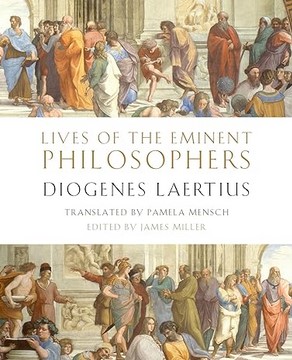
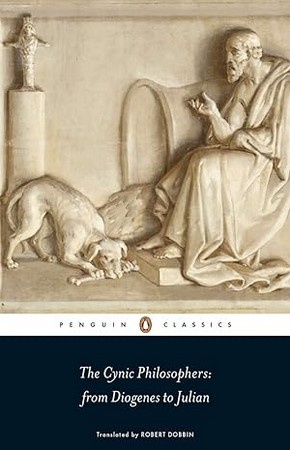
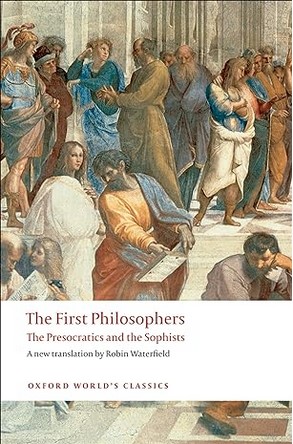
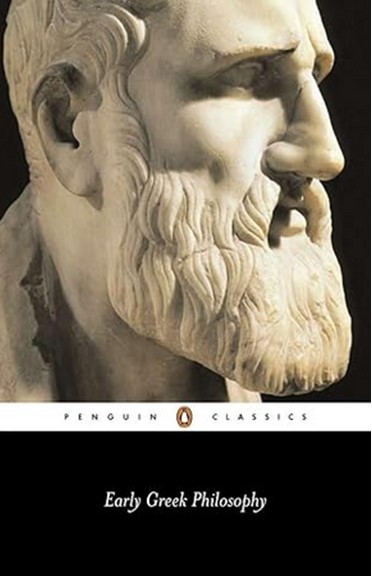

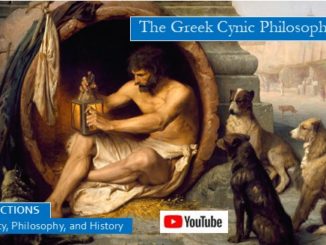

2 Trackbacks / Pingbacks